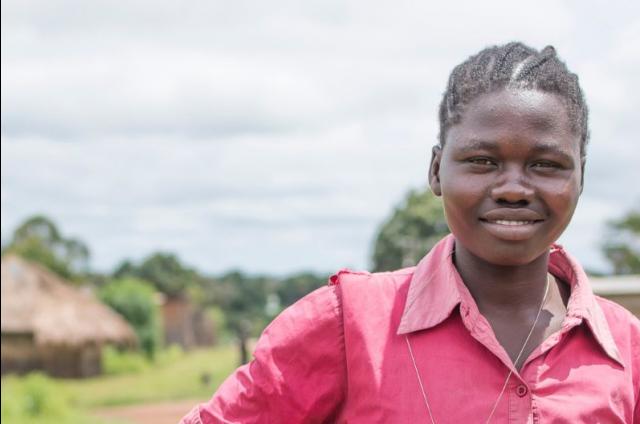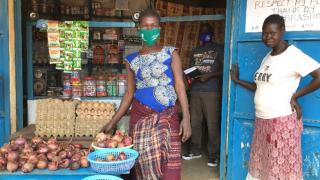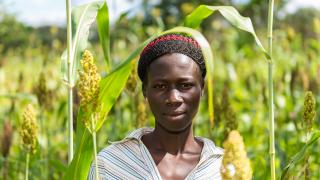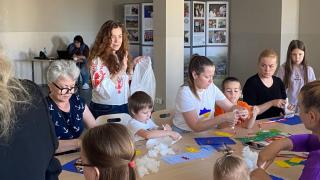Food and Water as Life and Death: Why Redefining the Power of South Sudanese Women is Urgent
Finding food and water is women’s work in South Sudan, a conflict-affected nation where two-thirds of the population (8.9 million people) is facing catastrophic starvation.
When Aamira, a 17-year-old bride, leaves her home to look for water, the journey itself is perilous.
Not only because she has to walk long distances – the wells closest to her village, mostly built by humanitarian groups, no longer function – but also because she runs the risk of encountering violent abuse from roving soldiers, both governmental and rebel. According to a 2022 UN Security Council Human Rights Report, some women and girls, alone or in groups, don’t even make it home alive.
For both water and security reasons, repairing the wells closest to villages seems to be the most immediate solution, but bureaucratic red tape can be daunting. That’s exactly why Women for Women International has developed programmes to equip the most marginalised women with the skills they need to better manage not only their households but also their larger communities.
"Our priority,” says Miriah John, Advocacy Coordinator in our South Sudan office, in the southern city of Yei, “is to increase women’s participation in leadership roles in Yei County, and beyond."
To empower women with the skills they need for basic survival is a 360-degree shift in this patriarchy-dominated region, where two-thirds of South Sudanese women are married off as child brides. But the factors producing such food and water insecurity are even more complex.
Despite winning its independence 11 years ago after two decades of violent conflict, South Sudan is still grappling with intertribal hostilities. Over the last two years, the double knock-on effect of the pandemic and the Ukraine War has paralysed supply chains and driven food and fuel prices sky-high. And Mother Nature hasn’t been kind.
In 2021 alone, after three years of unprecedented flooding, one million people have had to flee their homes. This CNN report shows the devastating impact up close. Entire cities flooded. Crops destroyed. Many suffering water-borne diseases. Malnutrition of children at the highest recorded. This year, it’s estimated that approximately 600,000 more South Sudanese will be in the path of expanding flood waters and at risk of displacement.
In the face of such catastrophes, we know that women can still impact their own quality of life.
In our Stronger Women, Stronger Nations programme, a woman breaks the isolation of war and conflict by joining a small group of women just like her. Together, they form support networks, learn to earn an income and save money, and gain knowledge and resources about health and their rights.
The effect can be powerful.
Nema, one graduate of our programme, is proof. She enrolled in our programme in South Sudan with the dream of becoming an entrepreneur. After learning how to save money, she used her stipend to sell onions, fish, tomatoes, coffee and cooking oil out of her home until conflict forced her and her family to flee. In that moment she lost everything. Far from home, survival became day to day, she could no longer afford to send her children to school, and the stress caused her and her husband to separate.
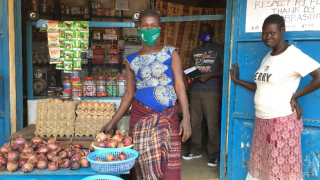
But four years later, Nema was able to raise over 150,000 SSP (~ £225) and expand her business, stocking new goods like eggs, sugar, soap, tea, and beer. Her children are back in school. She has reunited with her husband. And she is even dreaming of opening a tea shop.
I wish a programme like this could reach every woman like me.
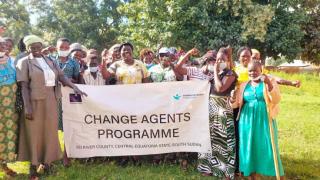
Learning to impact the wider community, however, takes more training. Our Change Agents programme further supports women’s participation in all the decision-making that affects their lives. We train women to understand their rights, gender and power analysis, problem-solving, communication and action planning.
Our Change Agents become leaders and advocates for themselves and their communities.
So, what is being done about those wells that no longer function?
Cecilia, one of our Change Agents in South Sudan, took the problem of no clean drinking water to village meetings. She listened to other women and gathered opinions about their many urgent concerns.
Then, equipped with the skills she’d gained in our Change Agents programme, she spoke to the Yei River county commissioner when he visited her village and described exactly what women must go through to collect water in the absence of working wells.
The Commissioner’s response?
A promise that his team would liaise with stakeholders to repair the wells to facilitate a workable water supply.
In Cecilia’s mind, that one step, if followed through, has the potential to save a lot of lives. But it’s only the first step in a long series of many towards creating a more equal, peaceful and prosperous life for herself, her family and her community.
read more blogs
Nema
subtitle:
Nema lives with her husband and five children, displaced in South Sudan after fleeing conflict in their hometown in 2016. Read about how our programme helped Nema become an entrepreneur and rebuild her life.
Marianne Kajokaya is our Country Director in South Sudan. In this blog, she shares how the war in Ukraine is affecting women in some of the world's poorest communities where we work in South Sudan.
Women for Women International CEO, Laurie Adams, reflects on her visit to Poland to see how the survivors of the Russian invasion on Ukraine are able to maintain hope amidst chaos.

